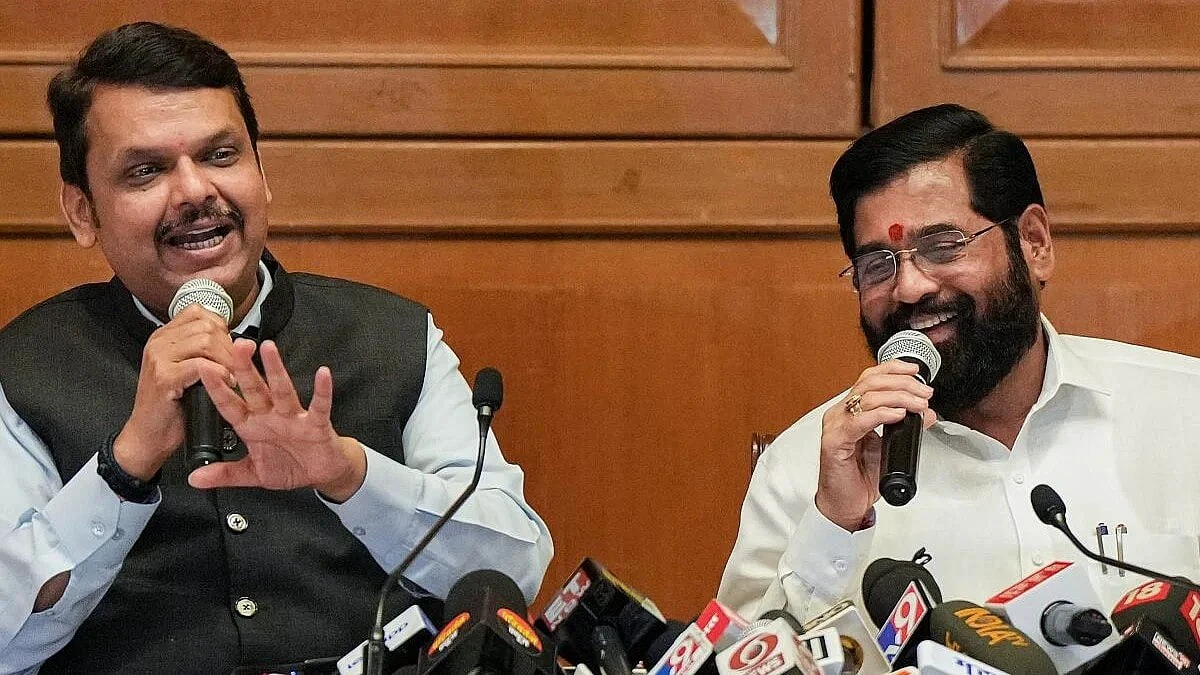MUMBAI: Even as the BJP-led Maha Yuti grapples with the vexed Marathas vs Other Backward Classes (OBC) quota issue, demands have emerged from the Banjaras and Dhangars seeking a change in categories – a compounding issue which would have its imprint on the mega local bodies in Maharashtra.
The government seems to be in a Catch-22 situation.
As reservation stands in Maharashtra, it is 62 per cent, much above the Supreme Court’s cap of 50 per cent.
In Maharashtra, the break up is – Scheduled Castes (13 per cent), Scheduled Tubes (7 per cent), Other Backward Classes (19 per cent), Special Backward Classes (2 per cent), Denotified Tribes (A) Vimukta Jati (3 per cent), Nomadic Tribes (B) (2.5 per cent), Nomadic Tribes (C) Dhangar (3.5 per cent), Nomadic Tribes (D) Vanjari (2 per cent) and Socially and Economically Backward Classes (Maratha) (10 per cent).
Beyond this, the Economic Weaker Section (EWS) quota of 10 per cent is applicable to the non-reserved section of the population, regardless of caste and religion, with an annual income limit of Rs 8 lakh.
The issue has cropped up after the Devendra Fadnavis-led Maha Yuti dispensation, which also comprises Eknath Shinde-led Shiv Sena and Ajit Pawar-headed NCP, accepted the demands of Maratha reservation campaigner to issue a government resolution (GR) and implement the Hyderabad Gazetteer, which enlists Marathas as Kunbis in the Marathwada region.
Kunbis, a sub-caste of the Marathas, a predominantly agrarian community, are listed as OBCs, which totally gets a 27 per cent quota.
State’s Food, Civil Supplies and Consumer Protection Minister Chhagan Bhujbal and Congress Legislature Party leader Vijay Wadettiwar are leading the charge against the GR from the ruling Maha Yuti and Opposition Maha Vikas Aghadi, respectively.
Cabinet sub-committee set up
The government has set up a Cabinet sub-committee to expedite socio-economic, educational welfare measures for the OBCs, which is headed by State Revenue Minister Chandrashekhar Bawankule.
This is a parallel to the Cabinet sub-committee on issues of Marathas headed by State Water Resources Minister Radhakrishna Vikhe Patil.
“The government has opened a Pandora’s box by accepting Jarange’s demand. OBCs have no objection to caste certificates for those having Kunbi records in the gazetteer after they furnish their documents,” said Bhujbal, who is also the president of Akhil Bharatiya Mahatma Phule Samta Parishad.
“The GR, which lays down a procedure for the issuance of Kunbi/Maratha-Kunbi/Kunbi-Maratha caste certificates to persons belonging to Maratha community by taking into consideration the record of the Hyderabad Gazetteer was issued in haste, under the tremendous pressure of one powerful community and without it being put before the Cabinet, without calling for or considering any objections and suggestions, and without considering the protests and objections of the members that constitute the OBCs in the State, and it needs to be withdrawn,” Bhujbal wrote to Fadnavis.
“In the first government decision regarding Maratha reservation, the word ‘eligible’ was used. However, while issuing the second government decision, the word ‘eligible’ was omitted. This implies that the Maratha community could be granted blanket reservation under the OBC category,” added Wadettiwar.
The Banjara community has pointed out that Banjaras are listed as STs in the Hyderabad Gazetteer, and their category must be changed. In fact, Soil and Water Conservation Minister Sanjay Rathod and several MLAs participated in a meeting, and a formal memorandum would be submitted.
Similarly, the Dhangar community too demanded a change in category. The Dhangar community leaders claim ‘Dhangar’ and ‘Dhangad’ are the same and a “typographical error” had deprived them in Maharashtra to get the ST benefits, unlike other States.
